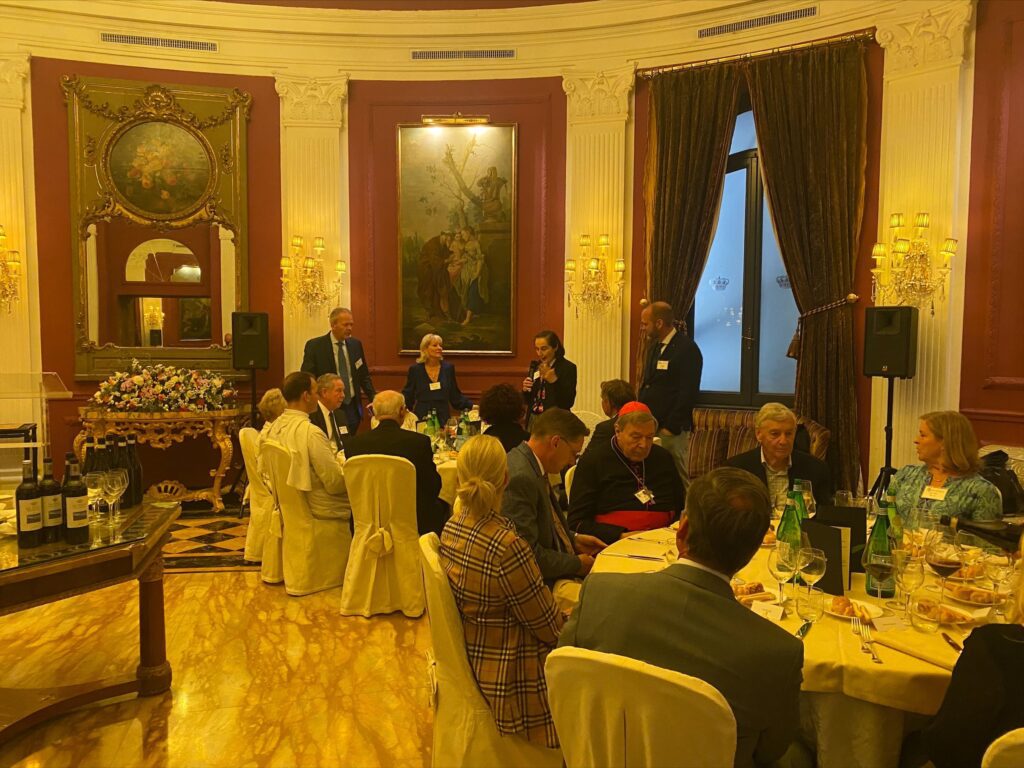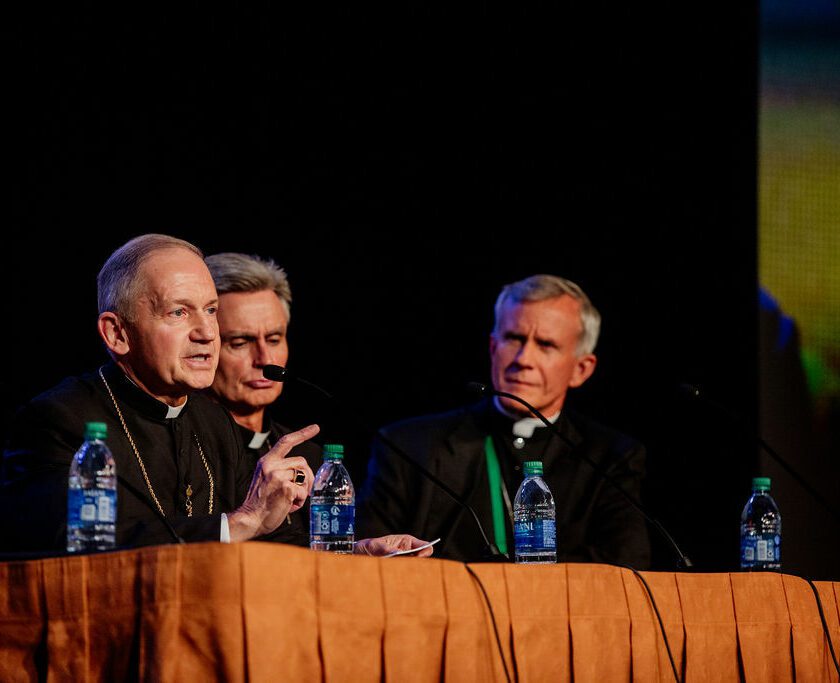By way of introduction, I will say a word or two about how I arrived to prepare the sermon you will soon hear. Originally I thought the Mass was that of Saturday and the readings of today did not provide much inspiration for my inadequate self. I am not claiming that the fault lies in the Scriptures!
Then I discovered that today is the feast of Pope Saint Pius V, a great counter-Reformation pope and yesterday was the feast of the fourteenth-century laywoman, a remarkable mystic who spoke truth to power, St Catherine of Siena. She was a major influence in persuading Pope Gregory XI to return from his pleasant exile in Avignon, which indeed occurred in 1377 and was followed by a period of schisms and antipopes until the reunification under Pope Martin V in 1417 at the Council of Constance.
For people like yourselves regularly involved with the Church and loving the Church, it is particularly useful to become aware of our history, of the heroes and heroines and of the many periods much worse than ours.
The readings of today Year C of the Third Sunday of Easter, provide material sufficient for a number of sermons although you will only be hearing one!
From Acts we heard of the Apostles continuing to preach despite the Sanhedrin’s prohibition and then the strange vision from the Apocalypse, the next life with” ten thousand times ten thousand, and thousands upon thousands giving praise, honour glory and power” to the One seated on the throne and the sacrificial Lamb.
And finally we have an account of Our Lord’s third apparition to the disciples after His resurrection.
I am going to move from the final section of this Gospel where Jesus upsets Peter by asking three time whether he loves Him and three times commissions Peter to feed His sheep.
So I have completed this circle from the Saturday readings and will say a few words on Pius V and our understanding of the papacy in this Sunday vigil Mass.
It was Jesus who renamed Simon as the rockman and described him as the foundation of the Church in the famous chapter 16 of Matthew’s Gospel and today’s passage with Chapter 21 of St Luke and many passing references confirm Peter’s leadership role. From this comes the basic Catholic conviction that the papacy, the role of Peter’s successor is part of God’s plan, announced by Jesus and not simply a wonderful human development. Rome still has the power of the keys, to bind and loose, but through most of history has played a special role in preserving and certifying the Apostolic Tradition, in reassuring the faithful throughout the world they are being taught the same central truths that Jesus and the Apostles taught.
Pius V certainly saw himself as belonging to this tradition. He was not born into a rich family and as a boy Antonio Ghislieri worked as a shepherd, allegedly the last pope to work with his hands until John Paul II, who was condemned to work in a quarry and a chemical factory by the Nazis.
Antonio joined the Dominicans and was novice master and lecturer before working with the Inquisition. He was appointed by Pope Paul IV, Gian Pietro Caraffa, who was notoriously tough as “Inquisitor General of Christendom”. Times changed with the appointment of the more benign Pius IV, whose nepotism Ghislieri opposed and on Pius’ death he was elected pope in 1566, three years after the close of the Council of Trent. It was due to him, above all, that the Catechism of the Council of Trent was published and the Breviary and Missal reformed and improved. He encouraged the study of the writings of Thomas Aquinas.
It was probably a mistake to excommunicate Elizabeth I in England, who was completely unimpressed, so worsening the position of English Catholics. But he was brilliantly successful in helping to put together the joint Catholic fleet which destroyed Turkish domination of the Mediterranean in the naval battle of Lepanto in 1571. Cervantes, the Spanish equivalent of Shakespeare, was a sailor in that battle, which was a huge engagement involving many more ships and sailors than the Battle of Trafalgar when Nelson made mincemeat of the French in 1805. Whatever of Trafalgar, we are told that when the death of Pope Pius V in 1572 was announced in Istanbul, the Islamic capital, there was dancing in the streets.
Our times are different but similar. We too are in a time of war, but we are able to view on our television screens the grim reality, the slaughter, and the suffering that is brought about by modern arms.
But the papacy continues with its ancient role of unifying the Church around the person and teachings of Christ and the apostles, the apostolic tradition. We must always pray for the Papacy and the Bishop who is Pope, because the unity of a world-wide church is not maintained automatically or easily in this day and age. We have new doctrinal challenges in the area of morality, especially sexual morality and this will have to be dealt with. We have the second session of a plenary council in Australia later this year and I am opposed to the notion of an Australian version of the ten commandments, and Catholic unity is not constituted by a loose federation of local churches who differ on substantive elements of the apostolic tradition.
So we thank God for the saints who have gone before us, for the many good things we have received and often take for granted, parish priests, bishops, the pope. And we pray for our Catholic Church, for the pope and the maintenance of Catholic unity around Christ and His teachings in the Apostolic Tradition.
+ Cardinal George Pell
Your email address will not be published.

